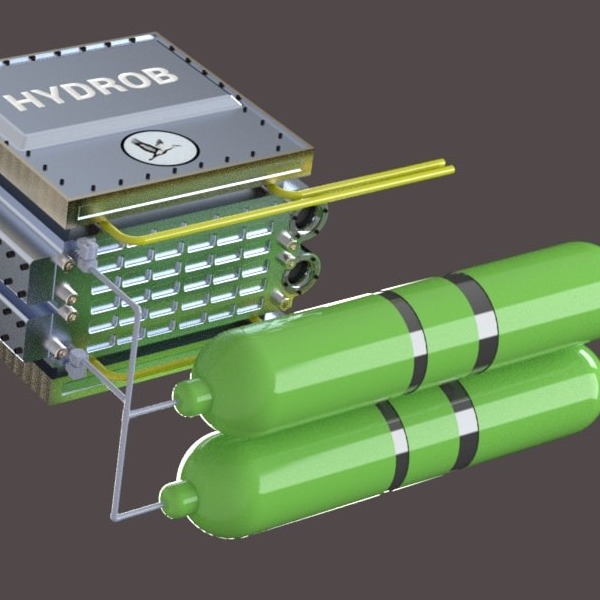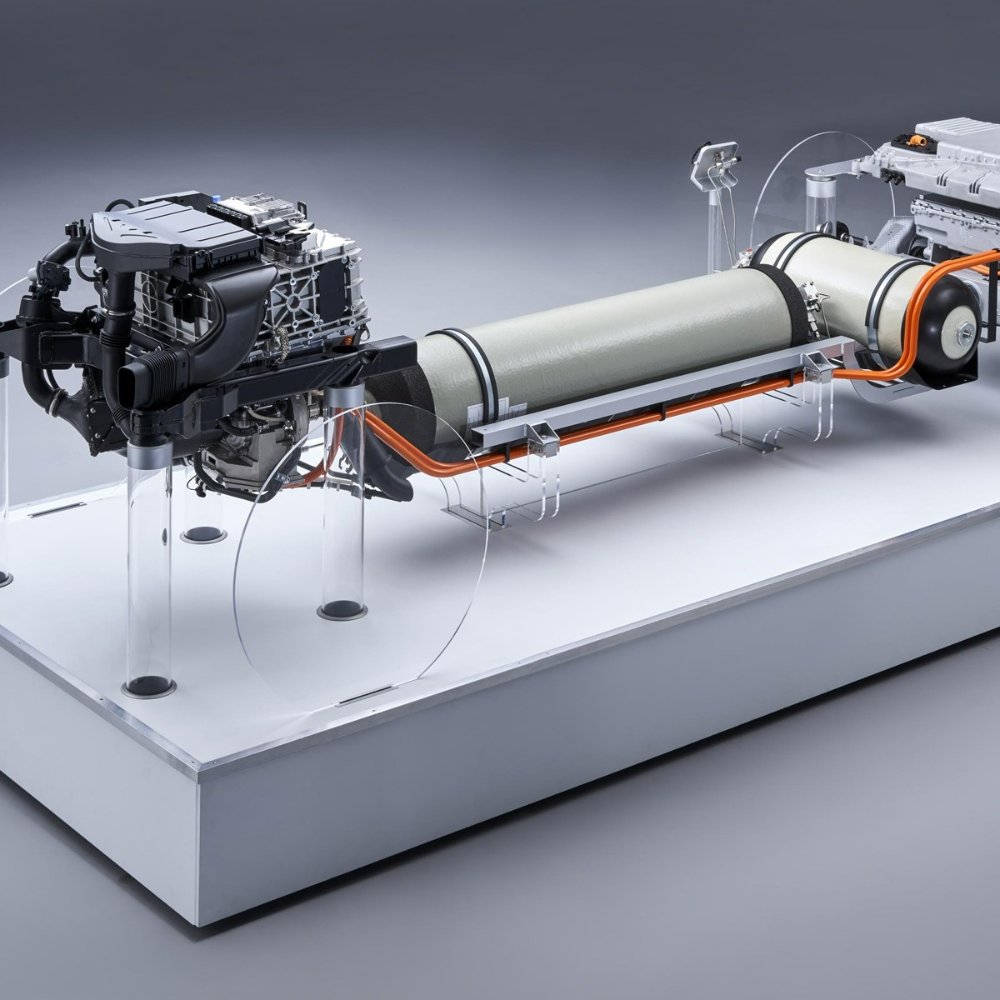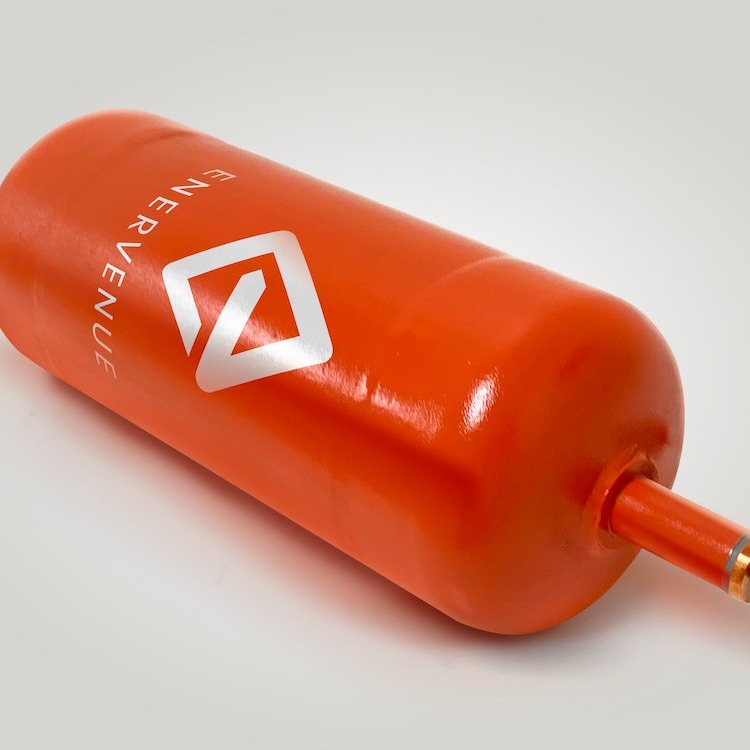Introduction to Hydrogen as a Fuel
The future of sustainable energy in transportation is dynamic and potentially disruptive, with the ‘hydrogen battery’ poised as a key player. Let’s delve into what this entails and explore its potential as a viable alternative to traditional fuel sources.
The Basic Science of Hydrogen Energy
Hydrogen energy is based on a simple principle: it releases energy when it reacts with oxygen. This process results in only water vapor, positioning hydrogen as a clean energy source. A hydrogen fuel cell converts chemical energy from hydrogen into electricity through an electrochemical reaction, offering a zero-emission power source for vehicles.
Hydrogen Production and Storage Challenges
While hydrogen possesses great potential as a fuel source, its production and storage present hurdles. Currently, most hydrogen is produced through methods that emit carbon, negating its clean energy advantage. ‘Green hydrogen,’ produced via electrolysis using renewable energy, offers a carbon-neutral solution but is more expensive. Moreover, hydrogen must be stored under high pressure and is highly flammable, posing unique challenges in terms of safety and infrastructure.

Comparison of Hydrogen and Battery Technologies
When considering future vehicle fuels, hydrogen and battery technologies are front-runners. Each possesses unique capabilities and drawbacks that are worth examining.
Energy Efficiency and Environmental Impact
Hydrogen fuel cells and batteries both offer clean energy alternatives. But in terms of energy efficiency, there’s a notable difference. A battery-powered vehicle uses electricity more directly. It avoids the extra steps of generating and converting hydrogen that fuel cell vehicles require. This means that, as of now, battery vehicles usually have a higher energy efficiency.
On the other hand, hydrogen’s environmental impact is minimal when ‘green hydrogen’ is used – it results in water with no carbon emissions. However, most hydrogen production today involves carbon emissions, which reduces its environmental benefits.
Cost Implications for Hydrogen vs. Battery Vehicles
Economically, hydrogen and battery vehicles also differ substantially. Batteries are currently more cost-effective due to their widespread use and the established manufacturing infrastructure. As a result, the price of battery vehicles has been steadily decreasing.
Hydrogen vehicles, meanwhile, face high costs. These arise from the complex production of hydrogen and the need for new refueling infrastructure. However, should technology advance and production scale up, we might see these costs decline in the future. This could potentially make hydrogen vehicles more competitive with their battery counterparts.
In considering both efficiency and cost, each technology has its merits and downsides. The choice between hydrogen batteries and battery technologies may vary depending on specific use cases and market developments.
Advantages of Hydrogen for Vehicle Usage
One of the standout benefits of hydrogen as a vehicle fuel is its superior refueling and range capabilities compared to traditional and other alternative fuel sources. This asserts its potential role in future transportation.
Refueling Speed and Vehicle Range Benefits
Hydrogen fuel-cell vehicles boast a refueling time comparable to that of gasoline-powered vehicles, typically under five minutes. This is significantly faster than the charging times for most electric vehicles, which can vary from 30 minutes to several hours depending on the charging setup. For drivers who need a quick turnaround, hydrogen offers a clear advantage.
Furthermore, these vehicles can offer a longer driving range. For instance, models like the Toyota Mirai can travel approximately 400 miles on a single tank. This extended range capability alleviates the ‘range anxiety’ associated with electric vehicles, where drivers fear running out of power far from a charging station.

Application in Heavier Transportation Modes
Hydrogen’s potential extends beyond passenger cars to heavier modes of transportation, such as buses and trucks, which require a robust fuel solution for long-distance hauling. Hydrogen vehicles are particularly appealing in these sectors due to their ability to handle heavier loads and longer distances without the need for lengthy downtimes. Recent prototypes and tests in the sector indicate that hydrogen could significantly reduce the carbon footprint of heavy-duty road transport, aligning with global efforts towards decarbonization.
This makes hydrogen an attractive option not only from an environmental standpoint but also for economic reasons, potentially lowering operational costs in the long run. As infrastructure develops and technology advances, hydrogen could play a crucial role in transforming how goods and people are moved over vast distances.
Current Hydrogen Vehicles on the Market
As we delve into the realm of hydrogen-powered transportation, several models stand out as leaders in this sector. Understanding the key players in the hydrogen vehicle market helps in assessing their performance and market acceptance.
Overview of Leading Hydrogen Vehicles like Toyota Mirai and Hyundai Nexo
Two prominent hydrogen vehicles dominate the market: the Toyota Mirai and the Hyundai Nexo. The Toyota Mirai, a trailblazer in this technology, offers a range of up to 400 miles per tank. This makes it comparable to traditional gasoline vehicles in terms of range. Meanwhile, the Hyundai Nexo isn’t far behind, known for its safety features and sleek design, also offering a similar range.
Both vehicles utilize hydrogen fuel cell technology. This allows for rapid refueling times of around five minutes. Such quick refueling capability paired with long-range potential alleviates common concerns associated with electric vehicles, such as lengthy charging times and range anxiety.
These models are at the forefront, demonstrating the practical applications of hydrogen in consumer vehicles. They serve as benchmarks for evaluating the viability and progress of hydrogen fuel technology.
Developments in Hydrogen Fuel Cell Technology
In the evolving landscape of hydrogen fuel cell technology, continuous advancements are critical. Research focuses on enhancing the efficiency and sustainability of these cells. A pivotal aspect is reducing the cost and size of the fuel cells while improving their durability and performance.
Efforts are also toward refining the methods of hydrogen production to ensure a more eco-friendly process. Current models, like the Mirai and Nexo, rely on ‘green hydrogen’—produced from renewable energy sources. This move reflects an industry push towards sustainability.
The developments in this technology not only support the functionality of hydrogen vehicles but also highlight ongoing commitment to environmental conservation and technological innovation. As these advancements unfold, the landscape of hydrogen vehicles continues to grow more robust and promising.

Challenges Facing Hydrogen Vehicles
While hydrogen batteries present an exciting prospect for clean energy vehicles, there are significant challenges that stand in the way of widespread adoption.
Infrastructure and Safety Concerns
One of the largest obstacles for hydrogen vehicles is the lack of refueling infrastructure. With only a few hydrogen stations available, convenience is far from that of gasoline or electric charging stations. The need for more refueling points is clear, but building them requires substantial investments.
Safety is another critical issue. Hydrogen is flammable and must be stored at high pressures. Ensuring safe storage and transportation of hydrogen fuel is paramount. Manufacturers and researchers are working to make hydrogen as safe as possible, focusing on robust tank designs and sensors to detect leaks.
Economic Viability and Market Adoption Issues
The economic aspect is a tough challenge for hydrogen vehicles. Despite potential benefits, the high costs of producing and storing green hydrogen make these vehicles less competitive with battery electric vehicles (BEVs).
Market adoption is slow, hindered by both cost and the lack of infrastructure. The current price of hydrogen vehicles, coupled with the convenience of established gasoline and electric options, makes it a hard sell to consumers.
Moreover, convincing buyers to switch to hydrogen requires demonstrating clear advantages over existing vehicle technologies. With BEVs rapidly advancing, hydrogen faces a stern test in gaining market ground. Cost-cutting innovations and a push for infrastructure development could be crucial for the future competitiveness of hydrogen vehicles.
Future of Hydrogen in Transportation
The future of hydrogen in transportation looks promising yet complex. This section explores government roles and technological advances that could enhance hydrogen’s viability as a vehicle fuel.
Government Investments and Subsidies
Governments around the world are recognizing the potential of hydrogen as a clean alternative to fossil fuels. In response, they are providing significant investments and subsidies. These efforts aim to catalyze the hydrogen energy sector.
For instance, the European Union and the United States have allocated billions of dollars to support hydrogen projects. This support covers everything from production to the establishment of fueling infrastructure. Such financial backing is crucial. It helps reduce the costs associated with hydrogen technology development.
Moreover, these subsidies are critical for building more hydrogen refueling stations. An increased number of stations would greatly enhance convenience. This improvement could sway more consumers towards hydrogen vehicles.
Potential Technological Advancements
Innovations in technology will play a crucial role in determining hydrogen’s place in the automotive world. Researchers are working on multiple fronts to enhance hydrogen fuel cell efficiency and safety.
One key area of research is the reduction of platinum use in fuel cells. Platinum is costly and drives up the price of fuel cells. Finding cheaper catalysts could lower vehicle costs and boost market adoption.
Additionally, advancements in electrolysis technologies are essential. Improved efficiency in splitting water into hydrogen and oxygen would reduce the overall energy costs of producing green hydrogen.
Efforts are also focusing on improving hydrogen storage. Creating more compact and efficient systems could further integrate hydrogen technology in both private and public transportation sectors.
Together, these advancements could transform hydrogen into a far more competitive and sustainable option for powering future vehicles.
Conclusion
Summarizing the Viability of Hydrogen as a Future Vehicle Fuel
As we evaluate hydrogen as a future vehicle fuel, several factors must be considered. Hydrogen fuel cells hold promise for reducing emissions, as hydrogen only emits water when used. However, current production methods for hydrogen, mostly not ‘green’, detract from its environmental benefits.
Hydrogen vehicles like the Toyota Mirai and Hyundai Nexo demonstrate the practical use of this technology but face significant barriers. The very limited refueling infrastructure and the higher costs of hydrogen production hinder widespread adoption. Safety concerns due to hydrogen’s high flammability and the need for high-pressure storage also pose significant challenges.
Economically, while the cost of hydrogen production may decrease with technological advancements and larger-scale operations, it currently remains high. Hydrogen vehicles tend to be more expensive than their battery electric counterparts, partly due to the complexities of fuel cell technology and the need for expensive catalysts like platinum.
Governments around the world are trying to promote hydrogen with investments and subsidies aimed at reducing these barriers. Boosting the fueling infrastructure and advancing technology could make hydrogen more competitive.
In conclusion, the role of hydrogen in future vehicles is a dynamic one. It offers notable environmental and operational benefits, but overcoming the existing challenges is crucial for it to be a viable mainstream alternative to traditional and other zero-emission fuels.